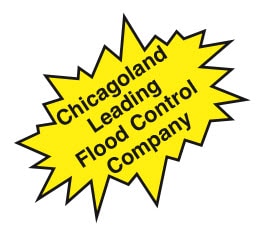Leak Detection in Chicago: What You Should Know
Did you know, according to the Environmental Protection Agency, leaks in the average American household can account for more than 10,000 gallons of water wasted every day?
The good news is that one of the basic bread-and-butter services of any good plumbing company is leak detection, and there are plenty of good reasons for that. Besides wasting water and costing homeowners a lot, pervasive leaks can also damage fixtures, walls, support structures, and even your health if they’re left unchecked and allowed to create spawning grounds for black mold.
Luckily, leak detection is a pretty regular process and can be done—depending on the extent of the leaks and their damage—relatively quickly.
What to expect from a leak inspection
Thorough Examination
Your pipes run pretty much through your whole house, and even just one leak can cause significant damage and a drain on your home’s lifespan and finances. Everything from the roof to the basement should be looked over to ensure their integrity and pinpoint any problem areas where leaks are occurring.
Tips On How To Spot Leaks
Good plumbers share what they know. If you contact your local experts today and ask them how they spot leaks, they’ll most likely rattle off a few of these points:
- Discolored water.
- Reduced water flow.
- Foundation cracks.
- Odors of mildew.
- An unusually high water bill.
Follow-Up Services
It’s important to note that if you’re having someone come over and check your leaks, you should trust them enough to be honest with their assessment and also with their prescription for what services you might need to fix any leaks they’ve spotted.
Don’t get gutted or undercut by opportunistic Company X; go with the time and home-trusted professionals and get the job done right by you and your home.
Parks' plumbing & Sewer Leak Detection Tips
At the end of your plumber’s visit, you’ll have patched pipes or fixtures that’ll stay high and dry for a while.
But if a leak happens again, what should you look for? And how can you handle it?
We already gave you some pointers up above, but here are a couple more, just as an added tip or two.
- You might not think about it until you hear it, but if you’re noticing that there are patches of your grass that are greener than the rest, that could be a sign that a water line, or even a sewer line, is leaking somehow into the yard.
- Never underestimate the benefit of climate protection for your pipes, whether they’re inside or outside. A lot of homeowners could save a lot of money if they invested in insulation, valves, or other protective and preventative measures for their pipes and plumbing fixtures.
- If you hear running water in or outside your house somewhere and cannot find where it’s coming from, call a plumber immediately. Depending on the sound and size of the leak, the least of your problems could be a slightly higher water bill, and the worst could be extensive and costly water damage.













